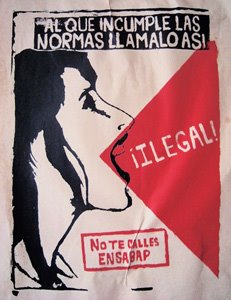......
César Bolaños
Peruvian Electroacoustic and Experimental Music (1964-1970)
 CD 1: Intensidad y Altu¬ra (1964); Interpolaciones (1966) for electric guitar and tape; Flexum (1969) for woodwind instruments, strings, percussion and tape; Divertimento I (1966) for clarinet, flute, bass clarinet, trumpet, clave, piano, double bass and percussion; Divertimento III (1967) for clarinet, flute, bass clarinet, piano, and percussion instruments; I 10 AIFG/Rbt-1 (1968) for 3 performers, horn, trombone, electric guitar, 2 percussionists, 2 projectionists and 9 projectors of slides synchronized by automatic system, and tape
CD 1: Intensidad y Altu¬ra (1964); Interpolaciones (1966) for electric guitar and tape; Flexum (1969) for woodwind instruments, strings, percussion and tape; Divertimento I (1966) for clarinet, flute, bass clarinet, trumpet, clave, piano, double bass and percussion; Divertimento III (1967) for clarinet, flute, bass clarinet, piano, and percussion instruments; I 10 AIFG/Rbt-1 (1968) for 3 performers, horn, trombone, electric guitar, 2 percussionists, 2 projectionists and 9 projectors of slides synchronized by automatic system, and tape
CD 2: Sialoecibi, ESEPCO I (1970) for piano and a recitator-mime-actor; Canción sin Palabras, ESEPCO II (1970) for piano (2 performers) and tape; Ñacahuasu (1970) for a small orchestra of 21 instrumentalists and a recitator
César Bolaños is one of the leading artists of the Latin American avant-garde of the mid 20th century. Born in Lima, Peru in 1931, he was part of an astonishing generation of Peruvian composers: Edgar Valcárcel, Olga Pozzi-Escot, Alejandro Núñez Allauca, Leopoldo La Rosa, Enrique Pinilla and Celso Garrido-Lecca, among others. After studying piano at the National Conservatory in Lima, and following classes with the Belgian composer Andrés Sas (who after leaving Europe settles in Peru), he would join the group "Renovación" (together with Valcárcel, Pozzi-Escot, Pulgar Vidal and Sas); with them Bolaños began a series of presentations and edited a music magazine. He had already composed brief pieces for piano and music for a chamber orchestra. At that time Bolaños is interested in the work of Stravinsky, Bartók and Schoenberg. But he's still far from the sound radicalism that he would reach in the future. In 1957 he traveled to New York City to study composition at the Manhattan School of Music and electronics at RCA. He met the Argentine composer Alberto Ginastera, who offered him a scholarship to study at the Latin-American Center of High Musical Studies (CLAEM) in Buenos Aires, Argentina. On his arrival in 1963, Bolaños became involved in the design and development of the electronic music laboratory of the CLAEM. There he composed his first electronic piece and the first work generated in the above laboratory: "Intensity and Height" (1964), inspired by a poem of César Vallejo. Bolaños also composed "Interpolations" (1966) for electric guitar and magnetic tape, "Spaces I" (1966), "II" (1967), "III" (1968) for magnetic tape, the experimental audio-visual cantata "Alpha-Omega" (1967), instrumental and mixed pieces like "Flexum" (1969), "I-10-AIFG/Rbt-1" (1968), and, with a commission from Radio Bremen (Germany), "Nacahuasu" (1970), inspired by the Che Guevara diaries. Bolaños also experimented with computers, and composed two pieces with the mathematician Mauricio Milchberg. "Sialoecibi" (1970): ESEPCO I (computer sound-expressive structure)* for piano and a recitator-mime-actor (a work that satirizes the organization language initials from the 1950's) and "Song without words", ESEPCO II (1970) "Homage to the unpronounced words" for piano (2 performers) and tape. For the composition of these pieces Bolaños and Milchberg introduce into the computer parameters to have the machine generate a composition from the information obtained by the composer's production.
These recordings bring together for the first time a definitive edition of his work on CD.
![[flyer.jpg]](https://blogger.googleusercontent.com/img/b/R29vZ2xl/AVvXsEggQSFsZaz9ghVij3D7AVOmK71y69fCwXUtEGcxVWFy-GWw7M0JqWLdw35MekoJ2t8piivnEv2cIQPl-KnKtL22DV-kig4_yOMtNBbCBqHXYDAl17PTIvb7Xq-_hX2BzKSOBYqY3g/s400/89jpg.jpg)
![[flyer.jpg]](https://blogger.googleusercontent.com/img/b/R29vZ2xl/AVvXsEiGMxQ0F0-CcosVaoDuKQ6XV-PgvikgvkBHOseKBniJZ2xk0Suv8PuyMlwtoIU2baF1daIktMLYM9cR8KqaVH8A66MOJscrgV-4vJfUWhI0I6UlNPop00SFfhgsIotHXR7wWmRw-A/s1600/flyer.jpg)






3 comentarios:
¡¡Grabé un disco de No-Música con Guillermo Olivera, guitarrista-craft ex Los Gauchos Alemanes!!
Te invito a que lo descargues en http://www.megaupload.com/?d=7ZXCS6F6
¿Cómo se descarga? Muy sencillo. Acceden al link, ingresan las letras y números que les solicita, hacen clic en “descargar archivo”, esperan los 45 segundos reglamentarios para descargar gratuitas, y hacen clic en “descarga normal”. La descarga demorará unos 25 minutos o menos.
Advierto que el orden elegido para los 25 fragmentos es el menos perfecto posible,
por lo pido sean oídos con la función random,
o como sea cambiando el orden en el que los reciben.
Cualquier difusión es bienvenida
www.jmgproyectos.blogspot.com
Este es un género musical popular hoy en día. Además de que desea descargar música como tonos de llamada, visite https://tonosdellamadagratis.net/
Music themes, ringtones 2022. Listen and download high quality sonnerie portable gratuite samsung .
Publicar un comentario